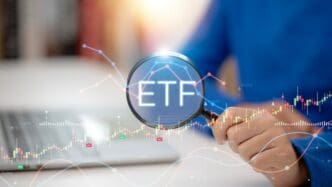Executive Summary
The Story So Far
Why This Matters
Who Thinks What?
Hong Kong’s Securities and Futures Commission (SFC) has approved the region’s first spot Solana (SOL) Exchange-Traded Fund (ETF), positioning the city ahead of the United States in offering a regulated investment product for the high-performance blockchain. Announced on October 22, 2025, this landmark decision makes Solana the third cryptocurrency, after Bitcoin and Ethereum, to receive spot ETF status in Hong Kong, with trading expected to commence on the Hong Kong Stock Exchange (HKEX) on Monday, October 27, 2025.
Details of the New ETF
The newly approved ETF, spearheaded by China Asset Management (Hong Kong) (ChinaAMC), will track Solana’s native token by directly holding SOL. It will offer investors exposure across multiple currency counters: Hong Kong dollars (ticker 03460), Chinese yuan (83460), and US dollars (9460), with an estimated minimum investment of approximately US$100. OSL Exchange will serve as the virtual asset trading platform, marking a crucial step towards mainstream institutional adoption.
Market Reaction and Solana’s Price Action
Following the announcement, Solana’s (SOL) price experienced initial volatility, continuing a short-term downtrend and holding around the $180-$185 support level. However, broader market metrics revealed a significant 40-46.73% increase in SOL trading volume within 24 hours, alongside a 15% rise in open interest for Solana futures. This dynamic suggests a “buy the rumor, sell the news” scenario for immediate price movements, yet unequivocally points to a substantial influx of capital and heightened investor interest.
JPMorgan analysts anticipate approximately $1.5 billion in net inflows into Solana ETFs during their first year, building on existing inflows into Solana ETPs in other markets. This institutional validation from a major financial hub is expected to bolster Solana’s liquidity and potentially reduce its inherent volatility over time.
Community and Ecosystem Response
The Solana community and the wider crypto ecosystem have responded with widespread celebration, viewing the approval as a significant legitimization of Solana as an asset class. Crypto thought leaders emphasize that this ETF opens doors for traditional finance investors to gain exposure without the complexities of direct asset management, fostering greater institutional adoption. Discussions point to an anticipated bullish trend for SOL in the mid to long term, driven by this new regulated investment vehicle.
The ripple effects are expected to extend to Solana-related DeFi protocols, NFT projects, and Web3 applications. An influx of new capital from institutional investors could lead to increased liquidity and Total Value Locked (TVL) within Solana’s DeFi ecosystem. Enhanced visibility and a healthier ecosystem are also likely to attract more developers, driving innovation and growth across Solana’s Web3 applications.
Broader Implications for the Crypto Market
Hong Kong’s move marks a pivotal moment, signaling the maturation of the crypto market beyond just Bitcoin and Ethereum. In the short term, it is expected to attract significant institutional capital into Solana, enhancing its liquidity and potentially stabilizing its price volatility. For other altcoins, the Hong Kong Solana ETF sets a powerful precedent, suggesting an expansion of regulatory comfort and accelerating the pipeline for similar products.
In the long term, this development will accelerate global institutional adoption of Solana and could pressure other regulators, particularly the US Securities and Exchange Commission (SEC), to expedite their review of altcoin ETFs. Hong Kong’s proactive regulatory approach, which includes a compulsory licensing system for Virtual Asset Service Providers (VASPs), contrasts with the US regulatory landscape. This “first-mover edge” positions Hong Kong as a potential global benchmark for cryptocurrency hubs.
Outlook and Key Metrics
The approval represents a significant leap in increasing accessibility and driving mainstream adoption for Solana, providing a regulated pathway for both institutional and retail investors. This institutional validation from a major financial hub underscores growing confidence in Solana’s robust technology and its potential as a diversified asset class. Important metrics to monitor include the official launch on October 27, 2025, ETF trading volumes, net inflows, Solana’s price performance, US SEC decisions regarding altcoin ETFs, and the continued growth of the Solana ecosystem.







